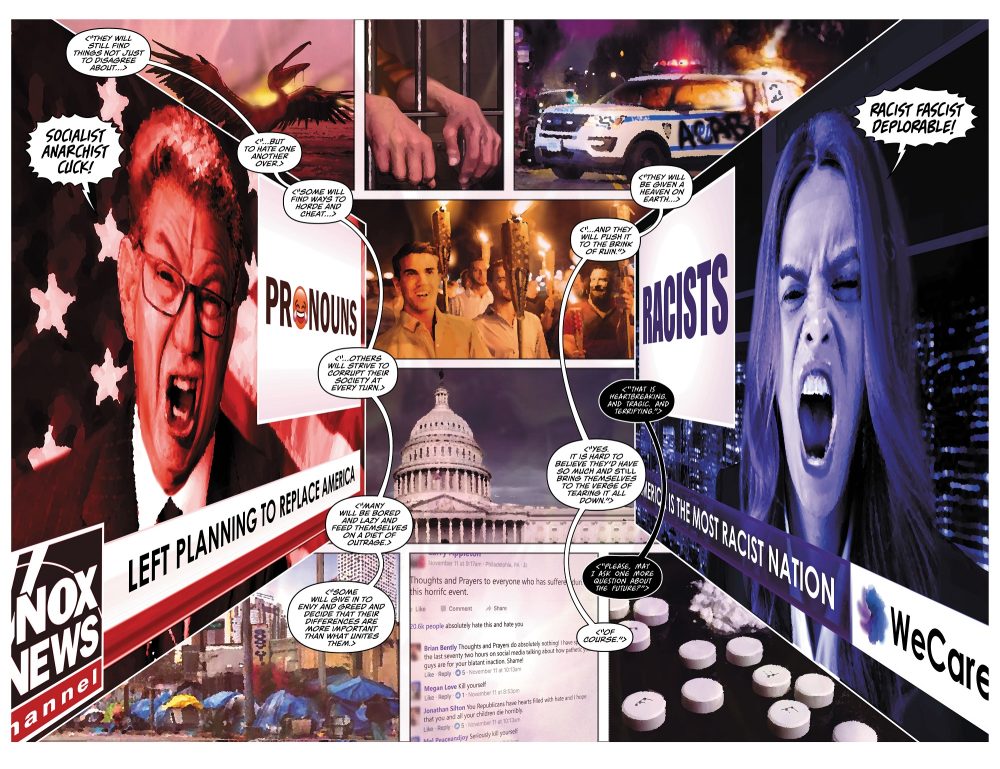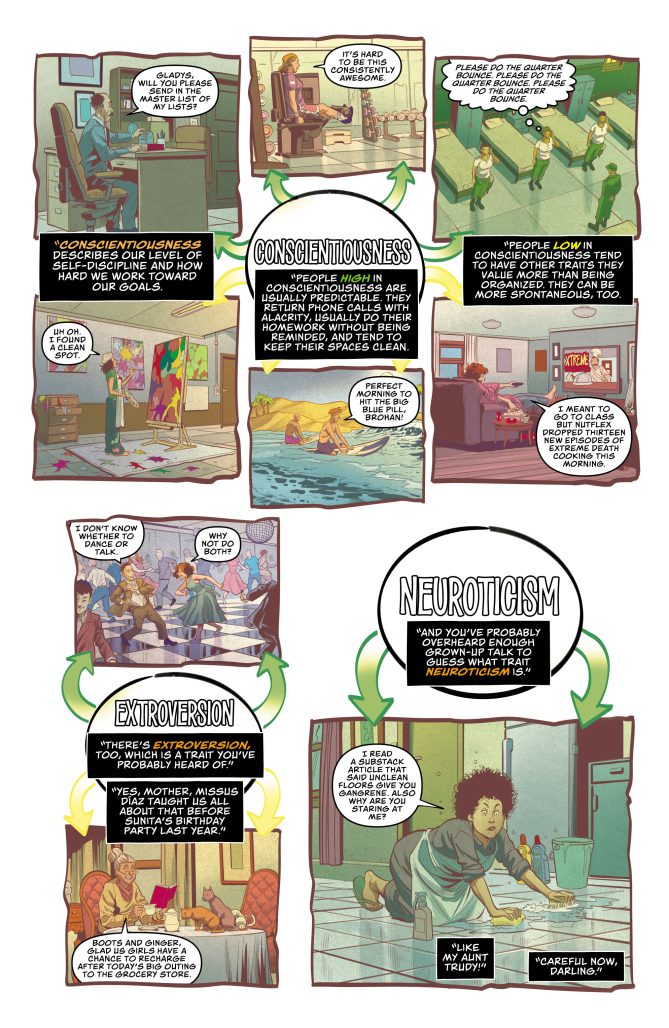 NEWTHINK VOL. 1.0
NEWTHINK VOL. 1.0
Writer: Gregg Hurwitz
Artist: Mike Deodato Jr., Ramon Rosanas, Keron Grant, Mike Choi, Will Conrad
Colorist: Lee Loughridge, Marco Lesko
Letterer: Andworld Design
Publisher: AWA Studios
Publication Date: December 2022
I talk about technology, horror, and politics quite a bit. In fact, if you’re familiar with my writing, you know the idea of tech driven dystopia is something I love sinking my teeth into. I’m also a big fan of shows like The Twilight Zone, because short sci-fi anthologies have a power to paint very intimate pictures of our social relationships and political problems without the need for convoluted lore or high production values. Today we bear the double-edged sword of monumental political and technological problems that have given rise to a wealth of fascinating and original art critical of these issues. Thus, NewThink is a series which should be after my own heart and slide perfectly into our current zeitgeist.
And yet, I was extremely disappointed by this collection.
NewThink Vol. 1.0 pitches itself as a Black Mirror style anthology but sadly reads more like a thematic pitch with no premise. Rather than weaving morally complex, cautionary tales in the tradition of great sci-fi anthologies, it spends most of its time moralizing at you with a disembodied voice spinning poorly disguised allegories without much substance. In moments throughout, and for the entire final issue, the book takes on a paternalistic streak that simplifies ideas it wants to discuss down to the most incoherent of straw men. The criticism presented is often unfocused with no clear target. Hurwitz seems to be railing against the idea that we’ve moved away from “civil” disagreement, nevermind what we might disagree about, without adding any specific original thought, or even research of his own.
This is perhaps most clear in Issue #4 which is framed by people throughout history announcing the wonders of the future. They list off all the innovative ways in which we’ve made our lives better, only to waste all our potential on petty disagreements and tribalism.
The issue, and the book overall, is the epitome of a bothsidesism that’s difficult to take seriously as a political commentary, and even more difficult to engage with as a narrative. In the case of the latter, the “story” of humanity isn’t written very much like a story worth investing in. The juxtaposition of the hardships of the past and the utopia of the future is so on the nose it verges on cringe. But more than that, the contrast isn’t painted with any understanding of what the differences are between the two periods being compared. The presentation is utterly shallow.
In one page of this issue, we see a woman explain how in the future, rather than arranged marriages, one would have the ability to find a compatible partner through dating apps. This line represents perhaps the best example of where this book fails. It ignores the political and societal implications of arranged marriages, as well as the fact that they do still exist in various societies today.
And it completely ignores the myriad of problems and criticisms of dating apps that have been well documented. Today, even Bumble has a mental health function to help you to deal with the variety of problems created by Bumble. Hurwitz seems completely unaware of the picture he’s painting, or the topics he’s writing about. He’s simply shouting angrily at the idea that we don’t do anything but shout angrily.
This shouting lacks any foundation as each of these issues are not their own concept, idea or allegory. They simply say the same thing over and over again with no characters or story to anchor yourself to. In the case of the first issue, Hurwitz loosely discusses the invasion of screens into our daily life, writing about them as an alien race called “skreens.” Nowhere in this tale does he attempt to discuss the reasons for this shift in technology, or how it impacts people on individual, emotional levels. There are no attempts to layer this metaphor on top of a story where we care about people or their actions, and there’s nothing to be learned from how he discusses the technology he’s criticizing. Like an alien race he’s just made up, there’s nothing tangible or specific about what the technological criticism is aiming at.
Each issue introduces a new artistic team which is intended to give every story its own unique take on the issues Hurwitz is discussing. However, the problem is that the scripting never shifts to suit the artists. Issues drawn like a fairy tale are written exactly like issues drawn like an expressionist horror story. Regardless of the art, every story is still a speech, either in third person or uttered by one character in a paternalistic tone. All manner of societal issues are boiled down to suit this singular perspective and the art isn’t allowed to convey any nuance or shifts in perspective. In a way, all sequential paneling can be considered a kind of montage as it’s a composite of multiple moments in time. But comics depend on their ability to control how much or how little we see to flesh out the individual snapshots of time. Rather than utilizing the form of comics, Hurwitz just lets the panels sit there as background to his blocks text, as if they’re just there to be spliced in as visual aids and not part of the story themselves.
The responsibility of cultural commentary and tech criticism is to take seriously that the objects of criticism present themselves as making life better. Tech in particular builds a myth around its conveniences, its desire to simply help or make the world better. Thus, criticism aims to shatter this illusion, and present the reality of the dangers we face and unravel our causal assumptions that have been force fed to us by years of PR narratives. When a story comes along that doesn’t attempt to engage with criticism in good faith, and instead just wants to scattershot its approach, it makes the task of explaining these issues all the more difficult.
There’s very little to be learned in NewThink Vol. 1.0, and that’s the biggest tragedy of this collection. There is a distinct lack of new ways of approaching our problems, or even assuming the intelligence and engagement of the reader. This series lacks a narrative hook, and often hand-waves complicated issues into the most basic of categories. At the end of the day, NewThink is just a lot of old cynicism with very little to think about.
Final Verdict: Skip
Read more trade collection reviews every Thursday in our Trade Rating column!











